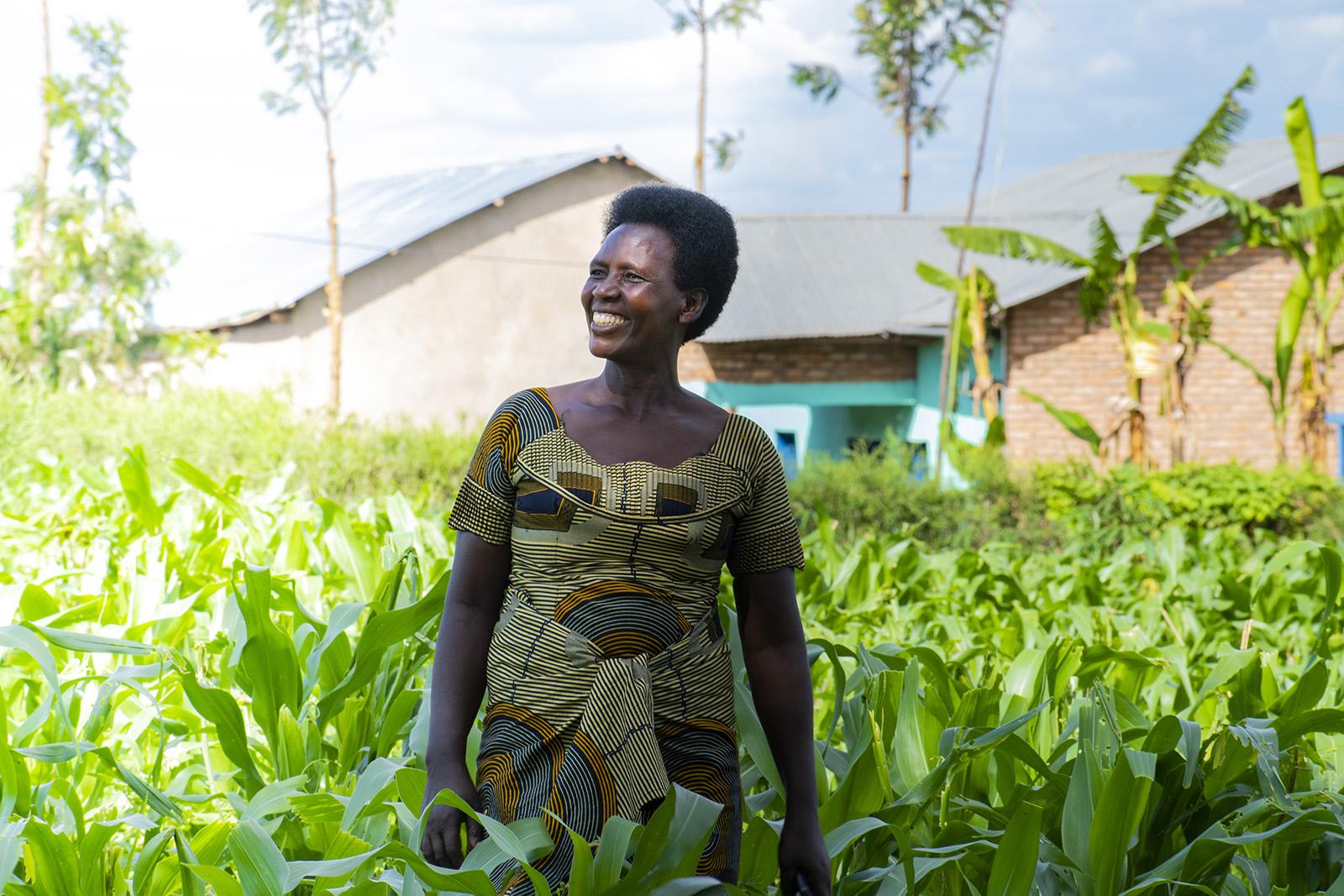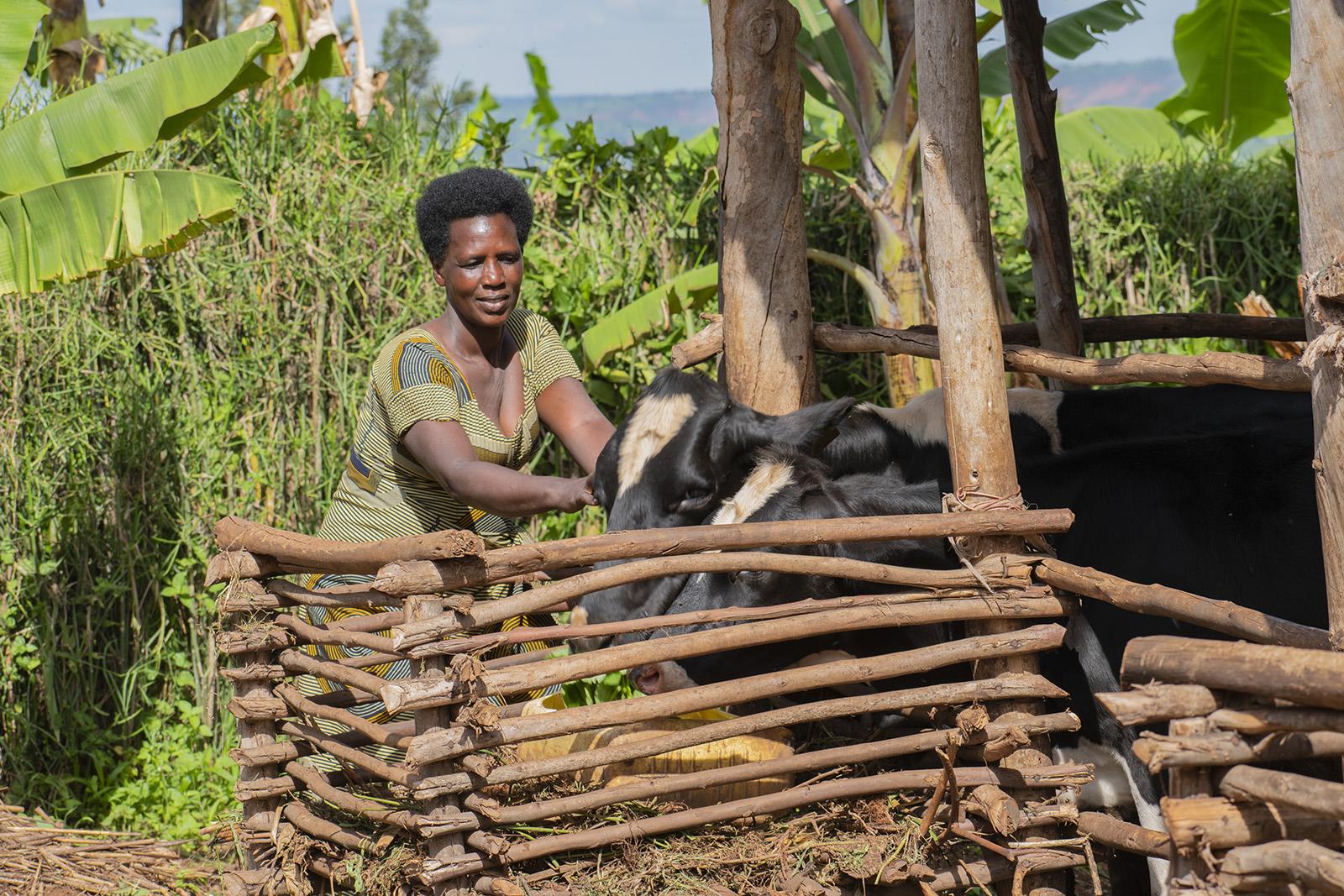Bóthar’s positive Ripple Effects in Rwanda
On Sunday 7th April 2024 President Paul Kagame and his wife led 37 visiting dignitaries at a wreath laying ceremony in the Rwandan capital Kigali. This marked the launch of one week of commemoration in a country wide event, Kwibuka 30. Speaking at a ceremony in Kigali, Kagame spoke about the legacy of genocide in Rwanda saying that “our politics are not organised on the basis of ethnicity or religion and never will be again," Today, Rwandan ID cards do not mention whether a person is Hutu or Tutsi. The genocide against the Tutsi in Rwanda took place over a period of 100 days from April to July 1994, when over one million Tutsis and some moderate Hutus were systematically killed. In 1995 AVEGA-Agahozo was formed by widows who now found themselves single parents with families to support. Agahozo is a Kinyarwanda word meaning ‘to dry your tears.’
Bóthar’s first project in Rwanda was in 1998. In the intervening years the communities have adapted the project in unique ways. In Rwamagana the Pass-on-Gift, an element of the original shipments continues to benefit families in the area. Today if a family were to lose an animal, for example to a virus, they can apply to the local veterinary department for a replacement. If they meet the eligibility criteria the family will receive a replacement calf from a previous beneficiary of the animal project.
Consolee, (age 51) has 4 surviving children now in adulthood who still live with her. Before joining the Bóthar and RippleEffect project she explained: “I was always among the poorest in my village and was considered a burden because I begged for food. We had nothing to eat.” Consolee received a Pass-on-Gift of a cow which has since given birth 5 times. Her primary income now derives from vegetable production after training by local Ripple Effect staff.

“In the previous harvest season, I earned 150,000Rwf from selling beans, 50,000Rwf from sorghum, 90,000Rwf from green banana (matooke) and 18,000Rwf per month from selling milk,” explains Consolee. In context for the full harvest season this is €220. Consolee is not only supporting herself and her extended family, she is also part of a self help savings group and involved in providing training on nutrition in her community.
In the most recent two-year project, Ripple Effect have trained 399 participants, benefiting almost 2000 people indirectly. 243 women took part in the training along with 41 people with disability and 16 young people. They received training including farm planning, vegetable production, animal husbandry, fodder multiplication and soil erosion control. Bóthar supported the project with funding.
This week, Bóthar CLG and Ripple Effect have written to the Department of Agriculture, Food and the Marine to showcase how farming interventions can be highly effective in enabling communities like Rwamagana to build their own solutions; their own resilience through food security; their own food programmes.
“At Ripple Effect we believe that giving communities the skills and training to transform their lives is the most powerful way of ensuring the future prosperity of all Rwandans.” Paul Stuart, CEO Ripple Effect.
Thirty years on from the genocide that threatened to destroy them, the people of Rwanda continue to show the world how a country can remake itself.
Information on how to support Bóthar’s work in Rwanda can be found on our website and social media pages or by contacting info@bothar.ie T: 061414142.
For further reading:
Emerance's story: Surviving the Rwandan Genocide
